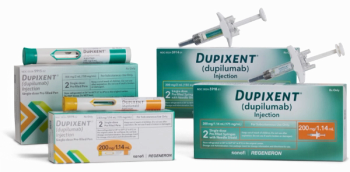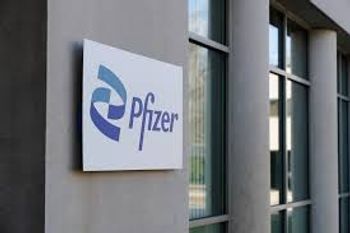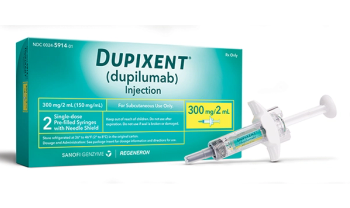
During a KFF media call, experts raised alarms that new Medicaid rules in the federal budget law could lead to coverage losses, higher costs and added pressure on states and hospitals.

During a KFF media call, experts raised alarms that new Medicaid rules in the federal budget law could lead to coverage losses, higher costs and added pressure on states and hospitals.

Michael Abrams, M.A., managing partner at Numerof & Associates, warned that without clear eligibility rules, the new $50 billion rural hospital relief fund could end up helping the wrong providers instead of the rural hospitals most in need.

Managed Healthcare Executive spoke with Michael Abrams, M.A., managing partner at Numerof & Associates, to discuss the newly passed $50 billion rural hospital relief fund and what it could mean for rural health systems. In a conversation that took place just before the legislation passed in the Senate on July 1, Abrams expressed cautious support for the fund while warning that without proper structure, it could fall short of meaningful change.

In an interview with Managed Healthcare Executive ahead of the Senate and House vote and under President Trump's official seal of approval on July 4, Michael Abrams, M.A., warned that without clear eligibility rules, the newly approved $50 billion rural hospital relief fund could be exploited by non-rural providers and fail to support the facilities it was meant to save.

AD and psoriasis were once thought to be opposites in terms of immune response, with AD linked to a Th2-dominant pathway and psoriasis driven by Th17 inflammation. However, newer research has shown that these diseases can overlap in patients and may even share common pathways.

Out of the more than 800,000 people worldwide living with hemophilia, around 20% of those with hemophilia A and 3% with hemophilia B develop inhibitors, preventing their bodies from responding to standard clotting factor therapies.

According to Regeneron, the drug is a bispecific antibody that binds to B-cell maturation antigen (BCMA) on cancerous plasma cells and CD3 on T cells, directing the immune system to attack and destroy multiple myeloma cells.

In a conversation with Managed Healthcare Executive, Michael Abrams, M.A., managing partner at Numerof & Associates, painted a picture of what’s at stake.

A new study found that patients with hemophilia A could safely switch directly from emicizumab to Mim8 without a washout period, meaning they did not need to stop treatment before starting the new medication and could maintain continuous protection against bleeding.

Climate change and air pollution are growing threats to public health, and new research suggests they may also worsen atopic dermatitis (AD), the most common chronic inflammatory skin condition, affecting up to 15% of people worldwide.

According to the latest edition of The Cancer Atlas, lower-income nations are experiencing a rise in lung, colorectal and breast cancer incidence due to increasing adoption of behaviors associated with economic development—such as tobacco use, poor nutrition and physical inactivity.

As sweeping policy shifts and rising restrictions threaten LGBTQ+ health access, providers, payers and employers reflect on what’s at stake in Pride Month's end—and what it will take to protect affirming equitable care for the future.


Of the 102,166 GLP-1s analyzed, 94% had some form of commercial insurance, yet cost-saving options were still widely overlooked.

Access to contraception is essential for reproductive health, yet women with disabilities face disproportionate obstacles.

Smart Communications surveyed 3,000 consumers worldwide to understand evolving expectations for digital customer experiences, especially in industries such as healthcare, insurance and financial services.

Since its approval in 2002, Humira has become the world’s top-selling drug—largely due to long-standing market exclusivity and rising prices in the U.S.

Hospital-at-home care delivers medical staff, equipment and treatments—such as IV infusions—directly to patients’ homes.

While drug prices and insurance companies often draw scrutiny, the report shifts the spotlight to hospitals—particularly nonprofit systems—as the main contributor to inflating costs.

When small-cell lung cancer (SCLC) has spread to distant parts of the body, it’s classified as extensive-stage, which applies to nearly two-thirds of SCLC cases at the time of diagnosis.

This approval marks the eighth disease indication for Dupixent as a new alternative for patients—many of whom are elderly and have limited treatment options.

In a conversation with Managed Healthcare Executive, 10XBeta CEO Marcel Botha suggested that in order to improve rural healthcare at a time when it’s threatened by potential Medicaid cuts, new technology must be designed with help from local communities. He added that federal policies should better support mobile care and telehealth services.

In a report by JPMorgan Chase's Morgan Health, it was found that 37% of women with employer-sponsored insurance said meeting their deductibles is difficult, and 36% reported that their plans didn’t cover care they expected—or paid less than anticipated.

Managed Healthcare Executive spoke with Ohio Rural Health Association leaders Rosanna Scott and Beth Kluding and Marcel Botha, CEO of healthcare technology company 10XBeta, to discuss how proposed Medicaid cuts and federal program changes could affect rural healthcare access, infrastructure and community well-being.

A new report by Commonwealth Fund ranks all 50 states and the District of Columbia across 50 indicators covering access, quality, outcomes and equity from data collected up to 2023.


It was found that those with severe hemophilia B have less than 1% of normal factor IX activity, often experiencing spontaneous bleeding that can cause joint damage or life-threatening events.

Rather than replacing human representatives, the tool was created to support staff by providing clear, plain-language responses during customer interactions.

In a national study of 55 million children and teens across the U.S., there were 1,240 confirmed cases of hidradenitis suppurativa (HS). Nearly all were aged 10 or older.
